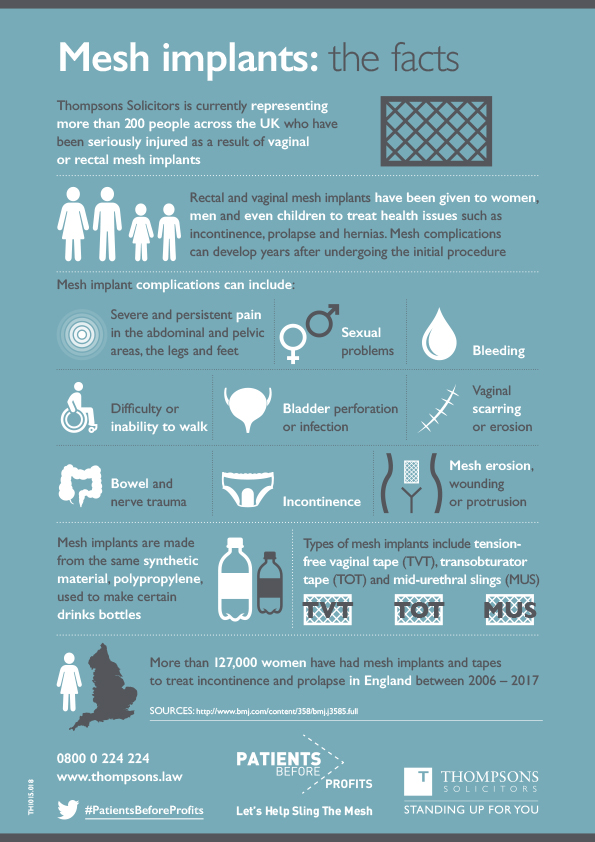Read our guide and share our infographic below to learn everything about mesh implants, from the facts to the problems and side effects associated with them.
What is a mesh implant used for?
A mesh implant is most commonly used to treat stress urinary incontinence in women, a condition which can occur in some women after pregnancy or hysterectomy. This most common form of treatment is known as tension-free vaginal tape (TVT) and involves placing medical mesh under the urethra, like a sling to keep it in place. Mesh implants are now also used to treat conditions such as hernias and prolapse in men, women and, in some cases, even children. Other types of mesh are TVT-O or TOT or rectopexy. Mesh is also used for Pelvic Organ Prolapse (POP).

